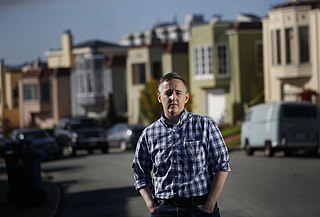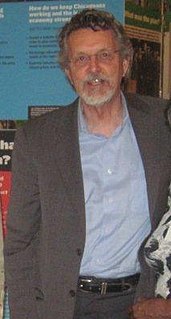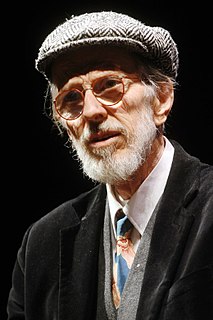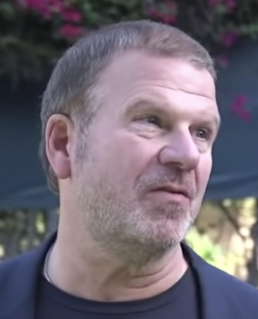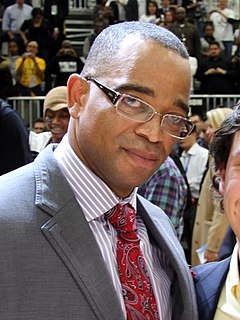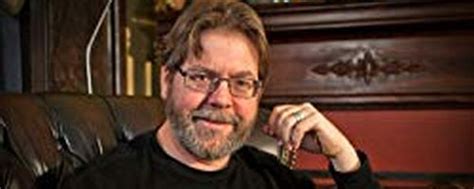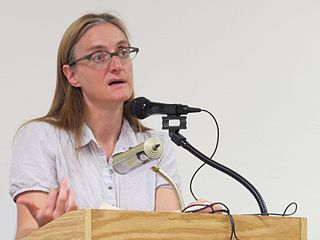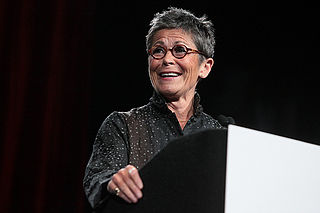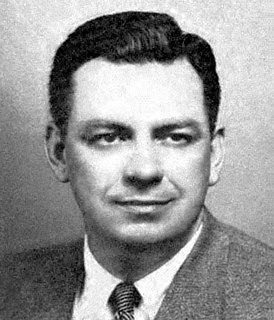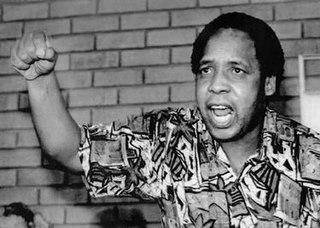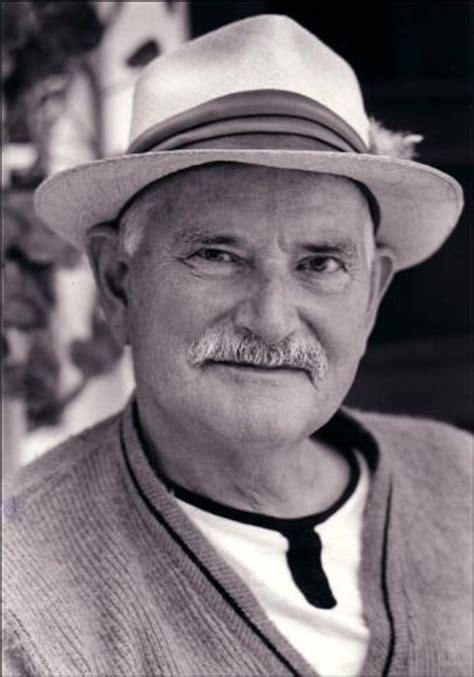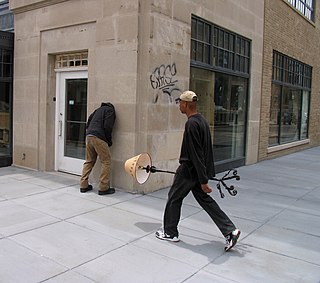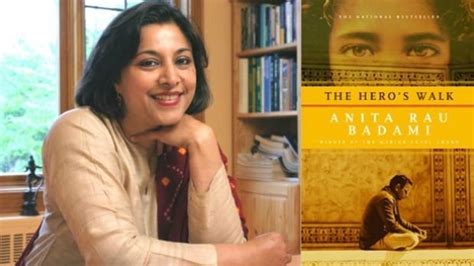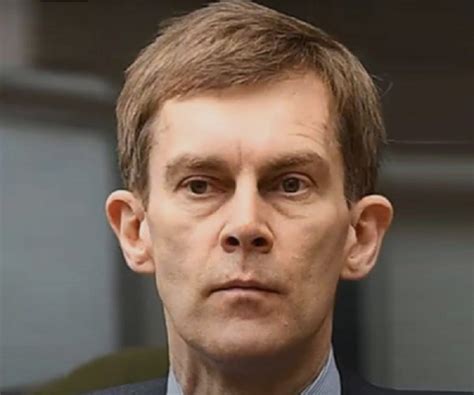Top 1029 Urban Quotes & Sayings - Page 17
Explore popular Urban quotes.
Last updated on November 25, 2024.
Each of the Iraqi children killed by the United States was our child. Each of the prisoners tortured in Abu Ghraib was our comrade. Each of their screams was ours. When they were humiliated, we were humiliated. The U.S. soldiers fighting in Iraq - mostly volunteers in a poverty draft from small towns and poor urban neighborhoods - are victims just as much as the Iraqis of the same horrendous process, which asks them to die for a victory that will never be theirs.
In years to come cities will stretch out horizontally and will be non-urban (Los Angeles). After that, they will bury themselves in the ground and will no longer have names. Everything will become infrastructure bathed in artificial light and energy. The brilliant superstructure, the crazy verticality will have disappeared. New York is the final fling of this baroque verticality, this centrifugal excentricity, before the horizontal dismantling arrives, and the subterranean implosion that will follow.
90 percent, 85 to 90 percent of Israeli citizens in Judea-Samaria, in the West Bank, live in clusters, in urban blocks. Everybody understands that if we were to have a solution then those blocks would stay in Israel. And that's where you saw these cranes; that's where Israelis live. In the Jewish neighborhoods of Jerusalem, everybody understands, they will stay.
I've been making 16mm urban landscape films about San Francisco for many years. I choose different nonfiction themes to investigate and am generally interested in surfacing lesser-known histories. I like to investigate and illuminate these histories, combining them with my own unconventional storytelling style, which is generally a stream-of-consciousness voiceover involving a steady stream of personal reflections on pining over unavailable women.
We've concocted a system where local trips take an auto. That's our biggest tragedy. Streetcars, such as those used in Portland's Pearl District, and elevated people movers, like those in downtown Miami, are moving people from rail stations to their final destinations. But a new concept, PRT, may help revolutionize urban transportation, providing a cost-effective way to get people from train stations to where they need to go.
I think that when you have any folks in our population who live under the threat of violence, who live under the threat of crime, who don't have the opportunity that others have because the schools in our urban areas are a dreaded failure, because of the positions that Hillary Clinton has taken and the people who support her, that I think any candidate should speak out to say that that type of thing is unacceptable.
I grew up in Memphis, Tennessee; I went to college in New Orleans before moving to New York City for graduate school. Both sets of my grandparents grew up in rural Mississippi and brought a lot of agrarian knowledge to Memphis, which is an urban center in the South. Both sets had amazing backyard gardens. My paternal grandfather, practically every inch of available space was green.
She missed the built environment of New York City. It was only in an urban landscape, amid straight lines and architecture, that she could situate herself in human time and history. She missed people. She missed human intrigue, drama and power struggles. She needed her own species, not to talk to, necessarily, but just to be among, as a bystander in a crowd or an anonymous witness.
The Democrat Party coalition has now been outnumbered. The Democrats threw away their allegiance to white working-class voters. They basically discarded everybody who's white that doesn't have a college education. Well, that is a huge number of people. The Democrats instead decided to build a coalition of minorities and illegal immigrants and union workers, and they are dwindling in number, and they are localized. They are in urban areas in a few big cities. We outnumber them now, and we can cement this for a huge amount of the future.
The right to the city is far more than the individual liberty to access urban resources: it is a right to change ourselves by changing the city. It is, moreover, a common rather than an individual right since this transformation inevitably depends upon the exercise of a collective power to reshape the processes of urbanization. The freedom to make and remake our cities and ourselves is, I want to argue, one of the most precious yet most neglected of our human rights.
To me, money is a means to do good. I reached a point in my life where I had enjoyed tremendous business success that afforded my family everything we could possibly want. My wife and I then decided that we could use our wealth to make a difference. So we created the Broad Foundations to do four things: to improve urban public education, to support innovative scientific and medical research, to foster art appreciation for audiences worldwide and to support civic initiatives in Los Angeles.
They were just snapshots, nothing special, nothing particularly artistic. They were used for utility purposes. (On photographs of mundane streetscapes he had Stanley Something-or-other take in Sacramento in 1988 to serve as backgrounds to his cartoons. People don't draw it, all this crap, people don't focus attention on it because it's ugly, it's bleak, it's depressing... But, this is the world we live in; I wanted my work to reflect that, the background reality of urban life. )
Hip-hop I never really got really into mainly just because I'm not a big fan of rap. I do like R&B artists like Beyonce. I'm a big fan of her mainly because of her vocals. They're just so awesome. I love her and Christina Aguilera, and that whole urban kind of feel is really great, especially with my voice.
Today's children are living a childhood of firsts. They are the first daycare generation; the first truly multicultural generation; the first generation to grow up in the electronic bubble, the environment defined by computers and new forms of television; the first post-sexual revolution generation; the first generation for which nature is more abstraction than reality; the first generation to grow up in new kinds of dispersed, deconcentrated cities, not quite urban, rural, or suburban.
Maybe this is all a bit of a myth, a willful desire to give each place its own unique aura. But doesn't any collective belief eventually become a kind of truth? If enough people act as if something is true, isn't it indeed "true," not objectively, but in the sense that it will determine how they will behave? The myth of unique urban character and unique sensibilities in different cities exists because we want it to exist.
Directors who have inspired me include Billy Wilder, Federico Fellini, lngmar Bergman, John Ford, Orson Welles, Werner Herzog, Stanley Kubrick, Alfred Hitchcock, Francis Ford Coppola and Ernst Lubitsch. In art school, I studied painters like Edward Hopper, who used urban motifs, Franz Kafka is my favorite novelist. My approach to film stems from my art background, as I go beyond the story to the sub-conscious mood created by sound and images.
The economic distress of America's inner cities may be the most pressing issue facing the nation. The lack of businesses and jobs in disadvantaged urban areas fuels not only a crushing cycle of poverty but also crippling social problems such as drug abuse and crime… A sustainable economic base can be created in the inner city, but only as it has been created elsewhere: through private, for-profit initiatives and investment based on economic self-interest and genuine competitive advantage.
Until the 1930s, the Constitution served as a major constraint on federal economic interventionism. The government's powers were understood to be just as the framers intended: few and explicitly enumerated in our founding document and its amendments. Search the Constitution as long as you like, and you will find no specific authority conveyed for the government to spend money on global-warming research, urban mass transit, food stamps, unemployment insurance, Medicaid, or countless other items in the stimulus package and, even without it, in the regular federal budget.
A lot of rappers say 'I'm talking about stuff that goes on, what I grew up in, that I know about.' And these journalists say, 'Yeah, but you're making 80 million dollars, that stuff's not about you.' Look how long he's been making 80 million. He grew up poor in an urban city and the things he's experienced and knows.
Wickedly Dangerous translates a terrifying figure from folklore , the Baba Yaga, into the smart, resourceful, motorcycle-riding Barbara Yager, who travels with her dragon-disguised-as-a-dog best friend, righting wrongs and helping those in need. But when she stumbles into a town whose children are vanishing, and meets the haunted young sheriff trying to save them, what was a job becomes very personal. This is urban fantasy at its best, with all the magic and mayhem tied together with very human emotions, even when the characters aren't quite human.
I don't know Hillary's Clinton stance on urban farming. I don't know Donald Trump's stance or Bernie Sanders's for that matter. But the Obamas have been amazing. You know, Michelle Obama, she planted that garden. She keeps bees there at the White House. Little known fact, though, is that Laura Bush also had an organic garden but she never told anyone about it.
I tell people to look at me and understand that everybody first told me that I couldn't be a 6-foot, 9-inch point guard, and I proved them wrong. Then they told me I couldn't be a businessman and make money in urban America, and I proved them wrong. And they thought I couldn't win all these championships, and I proved them wrong there as well.
For me and Michelle, this visit has therefore held special meaning. Throughout my life, including my work as a young man on behalf of the urban poor, I have always found inspiration in the life of Gandhiji and in his simple and profound lesson to be the change we seek in the world. And just as he summoned Indians to seek their destiny, he influenced champions of equality in my own country, including a young Martin Luther King
In his second term, [Ronald] Reagan completed the work of his first term - the rich got really rich, everything was deregulated, advocacy programs were quashed, the Savings and Loan program was trashed, the deficit was tripled, unions were busted, Housing and Urban Developing was in shambles, banks were closing, the military got lots of new toys, the religious right was strong, and AIDS was ignored.
I'm very humbled by the fact that grassroots efforts are rising up all over the country, but particularly in my home state of Ohio. I barely have words. To know that so many people across the state, from the rural areas to the urban areas, see something in my leadership and really believe I am someone for the people means a lot to me. That's how I want people to see me and my public service.
Perhaps if human desire is said out loud, the urban planes, the prisons, the architectural mirrors will take off, as airplanes do. The black planes will take off into the night air and the night winds, sliding past and behind each other, zooming, turning and turning in the redness of the winds, living, never to return.
This was early '90s and in New York hip-hop was coming on really strong; that was the sort of urban folk music that was almost threatening to eclipse rock music and indie rock music in terms of popularity, which it has certainly gone on to do. But you know, this is the end of the 1980s, beginning of the '90s. The whole independent label thing has really evolved to this incredible point from the early '80s when we started, and there wasn't one record label at all, until a couple people started forming these small labels.
In 1982 I bought the newly released Makina Plaubel 55mm fixed-lens camera. With this shift from 35mm to 6 x 7, I also changed from black and white to color. Later that year, I started my project on New Brighton called The Last Resort. However, the first project I shot in colour was composed of urban scenes from Liverpool. This image was on the second roll of film. It's the first good photo I made in this new chapter of my work.
So Socrates was a kind of gadfly. He was a sort of philosophical urban gorilla hanging around in the middle of Athens, asking these peculiar questions of everybody - important people, young men, slaves - questions that had to do with ultimately what's the life that's worth living. And Plato was one of the young men who hung around him, a very aristocratic young man, came from a very old, important family.
To the extent that our workers compete with low-paid Mexicans, it is as much through undocumented immigration as trade. This pattern threatens low-paid, low-skill U.S. workers. The combination of domestic reforms and NAFTA-related growth in Mexico will keep more Mexicans at home. It is likely that a reduction in immigration will increase the real wages of low-skilled urban and rural workers in the United States.
The Conservatives hold rural places because they keep bombarding rural Canada with, "Liberals are a bunch of urban, metropolitan snobs who don't care about you and want to leave you dead by the roadside." We've simply got to go out and say, "they're lying to you about us. We actually care about you more than the other guys, and we're not going to pander to your prejudices - we're going to give hope to your kids."
Will urban sprawl spread so far that most people lose all touch with nature? Will the day come when the only bird a typical American child ever sees is a canary in a pet shop window? When the only wild animal he knows is a rat-glimpsed on a night drive through some city slum? When the only tree he touches is the cleverly fabricated plastic evergreen that shades his gifts on Christmas morning?
Socialism is not about big concepts and heavy theory. Socialism is about decent shelter for those who are homeless. It is about water for those who have no safe drinking water. It is about health care, it is about a life of dignity for the old. It is about overcoming the huge divide between urban and rural areas. It is about a decent education for all our people. Socialism is about rolling back the tyranny of the market. As long as the economy is dominated by an unelected, privileged few, the case for socialism will exist.
I am glad that the country world...retains a power to use our English tongue. It is a part of its sense of reality, of its vocabulary of definite terms, and of its habit of earthly common sense. I find this country writing an excellent corrective of the urban vocabulary of abstractions and of the emotion disguised as thinking which abstractions and humbug have loosed upon the world. May there always be such things as a door, a milk pail, and a loaf of bread, and words to do them honor.
I think because it is a very well-saturated story,episode of Justified in Hannibal, and we've all heard it in some frame of a story, we've heard the urban legend of waking up in a bathtub with a kidney missing. It felt like if we are telling an organ-harvesting story, it was really about quickly selling the iconography of an organ-harvesting story, and then being able to mask that as a perfect way for Hannibal Lecter to go shopping for his menu.
Poor children live in a particularly dangerous world--an urban world of broken stair railings, of busy streets serving as playgrounds, of lead paint, rats and rat poisons, or a rural world where families do not enjoy the minimal levels of public health accepted as standard for nearly a century. Whether in city or country, this is a world where cavities go unfilled and ear infections threatening permanent deafness go untreated. It is world where even a small child learns to be ashamed of the way he or she lives.
There isn't a river or creek in the country - or there are very few - that doesn't have some small group of people working on a restoration or creek cleanup project. Let me give you one example that's a great metaphor: In Washington, D.C., there is a group called the Anacostia Watershed Society. Two rivers converge and define Washington - one which everybody knows about, the Potomac, and the Anacostia, which they don't. The Anacostia is one of the most polluted urban rivers in the country.
Modern man lives isolated in his artificial environment, not because the artificial is evil as such, but because of his lack of comprehension of the forces which make it work- of the principles which relate his gadgets to the forces of nature, to the universal order. It is not central heating which makes his existence 'unnatural,' but his refusal to take an interest in the principles behind it. By being entirely dependent on science, yet closing his mind to it, he leads the life of an urban barbarian.
I love everything black, because black is cool. When something crosses over, people are like, "Oh, this is a crossover." First of all, there is no urban anymore. Pop culture is black. White kids are dressing like black kids. It's all crossed the lines now. The way I understand it is, everything black is cool. When it crosses over to white, that means it's going from cool to uncool. That's what crossover is.
Our politics and science have never mastered the fact that people need more than to understand their obligation to one another and to the earth; they need also the feeling of such obligation, and the feeling can come only within the patterns of familiarity. A nation of urban nomads, such as we have become, may simply be unable to be enough disturbed by its destruction of the ecological health of the land, because the people's dependence on the land, though it has been expounded to them over and over again in general terms, is not immediate to their feelings.
"Acoustic ecologist" is basically a fancy name for someone who tries to become a better listener. Not just listening to those thoughts, ideas, and productions of human intention, but listening to places - whether it's an urban environment, residential, industrial, or even the farthest corner of the world, in one of our last great quiet places where we can listen to the pure sounds of nature without any human-caused noise intrusions.
Once I have the finished sculpture, I’ll put it out on the street or in nature or somewhere where it interacts with the environment. Really it’s kind of the idea of turning the street into a stage and this sort of urban theater has a life of its own. If you have creative drive, and you need to manifest it, then you need some sort of medium to do that through. For me, it worked out with sculpture, and tape just is a means of doing sculpture.
Claudia Rankine's Citizen comes at you like doom. It's the best note in the wrong song that is America. Its various realities-'mistaken' identity, social racism, the whole fabric of urban and suburban life-are almost too much to bear, but you bear them, because it's the truth. Citizen is Rankine's Spoon River Anthology, an epic as large and frightening and beautiful as the country and various emotional states that produced it.
Louisville is a place with no labels. It’s not the South, it’s not Chicago, and you don’t think of it as you think of New York or LA. It has some Southern romanticism to it, but also a Northern progressivism, this weird urban island in the middle of the state of Kentucky that has always provided a fertile, often dark, bed. For us, Louisville and the surrounding areas are the center of massive creativity and massive weirdness. The place has its flaws: You move away, but you’re always going to come back.
I felt that there's an obligation when writing a piece about an urban expressway made in the 50s to acknowledge the context, and Robert Moses is sort of an iconic figure in New York, and he influenced the shape of the city more than anyone else before or after him. He was one of the most powerful and influential civic architects in the world, because of how much he transformed the city. He built multiple bridges and highways and parks and recreational spaces, beaches - in the course of a few decades, he completely changed the city
Prison is quite literally a ghetto in the most classic sense of the word, a place where the U.S. government now puts not only the dangerous but also the inconvenient—people who are mentally ill, people who are addicts, people who are poor and uneducated and unskilled. Meanwhile the ghetto in the outside world is a prison as well, and a much more difficult one to escape from than this correctional compound. In fact, there is basically a revolving door between our urban and rural ghettos and the formal ghetto of our prison system.
Most automobiles spend about 80 percent of their time sitting around doing nothing. They're gasoline powered; they go to very high speeds, which in fact, under urban conditions, you don't need. These high speeds generate enormous safety requirements and so on and so forth. Now you can incrementally tweak the automobile. You can make the power train more efficient and you can enhance safety and all of these sorts of things that are very worthwhile.
I saw in Chicago, on the street where I was visiting my sister-in-law, this "Urban Renewal" and it means one thing: "Negro removal." But they want to tear the homes down and put a parking lot there. Where are those people going? Where will they go? And as soon as Negroes take to the street demonstrating, one hears people say, "they shouldn't have done it." The world is looking at America and it is really beginning to show up for what it is really like. "Go Tell It on the Mountain." We can no longer ignore this, that America is not "the land of the free and the home of the brave."
I wanted to make sure the focus [in The Land] was on human beings themselves and their decisions, but still connected to the urban environment that people associate as being black. I think I was able to make a film without commenting on "black this or black that" and you still feel the presence of it. There's no one character who's saying "we're all black and we're all in this struggle." It's that you just feel it. Some of that is because we get the sense from a lot of independent films that black people struggle all the time.
I'm 13 to 17, 18 years old; I thought that's what the world was like. It never occurred to me that this was a very unusual period in music history. So I went on assuming that one day I'm going to have my band like my heroes had their own band. So people ask me this question all the time - they go, "Bass is basically a background instrument." The other thing is that in urban music, Black music, the bass has a much higher profile.
Especially in urban areas, nobody cares so much [about castes], because you are forced to live in the same buildings. There is so, so little space. You can't be thinking about whether you are living in a street that has only Brahmins, or in a building that has been touched only by Muslims or Christians. You just live there, because that's the only place that you can find. So such distinctions just crumble away. There are people who maintain them, at all costs. But for the most part, it doesn't matter.
Not to find one's way around a city does not mean much. But to lose one's way in a city, as one loses one's way in a forest, requires some schooling. Street names must speak to the urban wanderer like the snapping of dry twigs, and little streets in the heart of the city must reflect the times of day, for him, as clearly as a mountain valley. This art I acquired rather late in life; it fulfilled a dream, of which the first traces were labyrinths on the blotting papers in my school notebooks.
I love dipping into worlds at a fast and furious pace. A little glimpse allows the audience to put together the rest of that world in their brain. I love sketches that require the audience to piece together the comedic engine themselves. Give them all the information but not tell them what the scene is about so they can have that eureka moment of, "Oh my God, he's only used to the way urban students pronounce their names. That's what's going on here.".
My argument for that is: Why not create urban farms that are like parks, on public land? There actually is a park that I see as a model: Dover Street Park in Oakland. They took this park that has swings and playground-type things and turned it into a farm. There's not chickens, just annual vegetables interspersed with fruit trees. And it's super cool because you see people playing with their kids and then they go pick raspberries and some greens for dinner.
The earthquake in Haiti was a class-based catastrophe. It didn't much harm the wealthy elite up in the hills, they were shaken but not destroyed. On the other hand the people who were living in the miserable urban slums, huge numbers of them, they were devastated. Maybe a couple hundred thousand were killed. How come they were living there? They were living there because of-it goes back to the French colonial system-but in the past century, they were living there because of US policies, consistent policies.
The decision to rely heavily on high-altitude air power, target urban infrastructure and repeatedly attack heavily populated towns and villages has reflected a deliberate trade-off of the lives of American pilots and soldiers, not with those of their declared Taliban enemies, but with Afghan civilians... There will be no official two-minute silence for the Afghan dead, no newspaper obituaries or memorial services attended by the prime minister, as there were for the victims of the twin towers.
Ironically, though our society of affluence brings safety and stability, it doesn't bring psychological health. As wealth goes up, suicide and depression rates tend to go up. I read one study that compared women in North America with women in Nigeria, and the group with the highest rates of depression was urban North American women, which is the wealthiest. Now, there are obviously huge stresses that come with poverty, but the poorer the society, the more collaborative people have to be.



